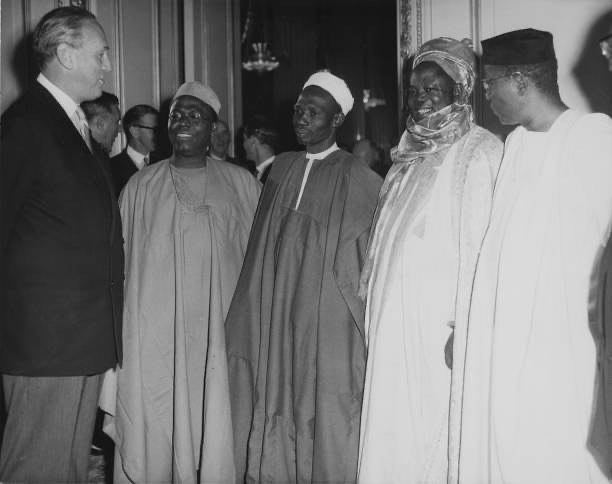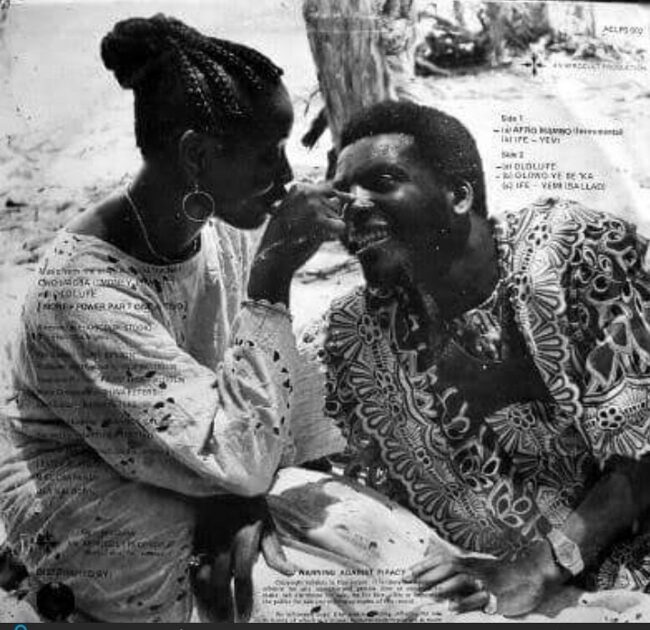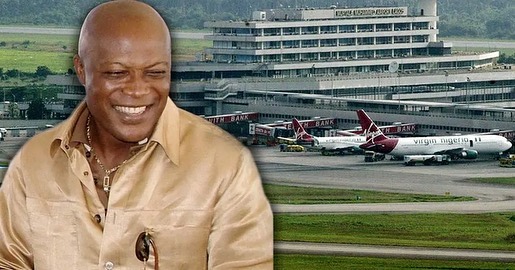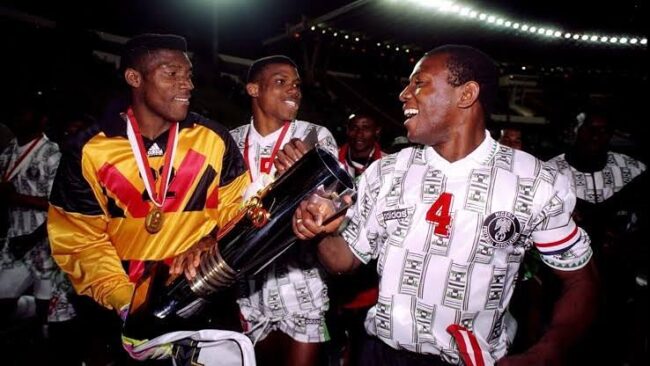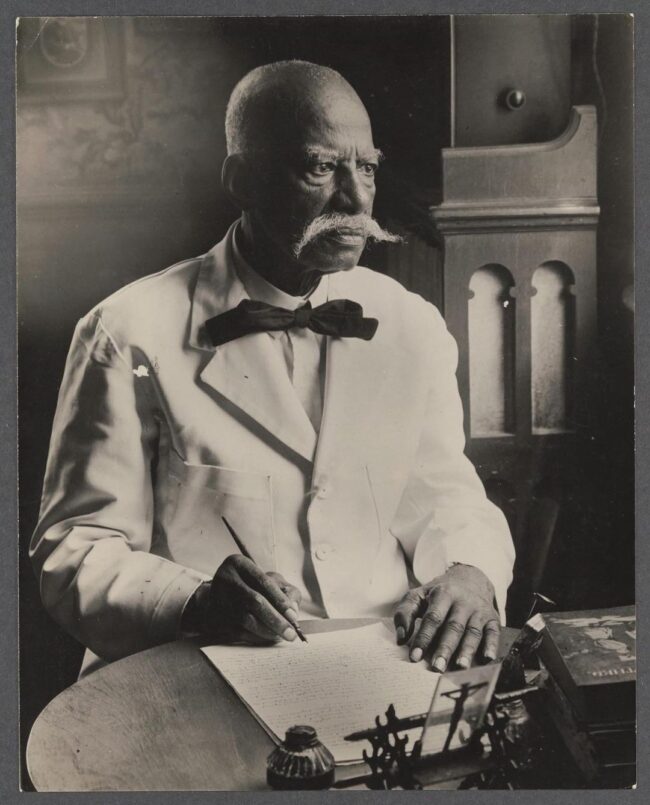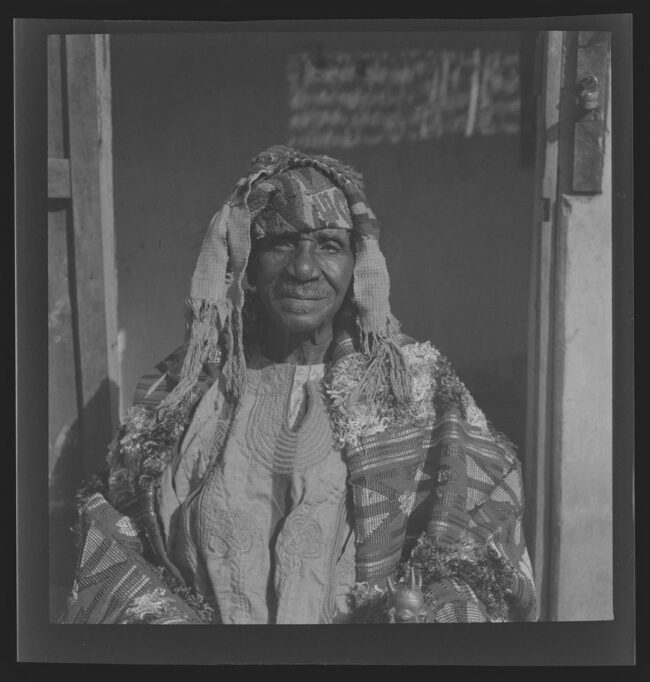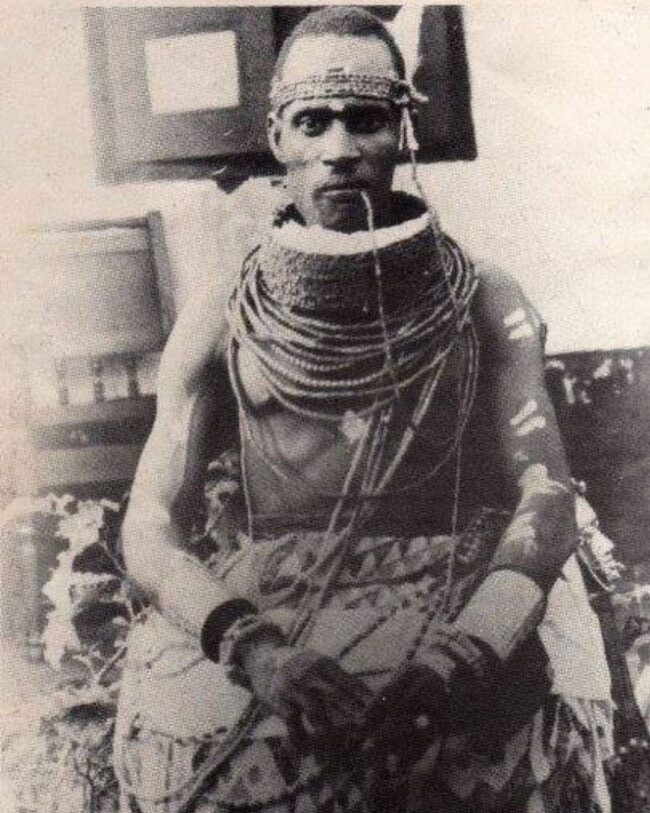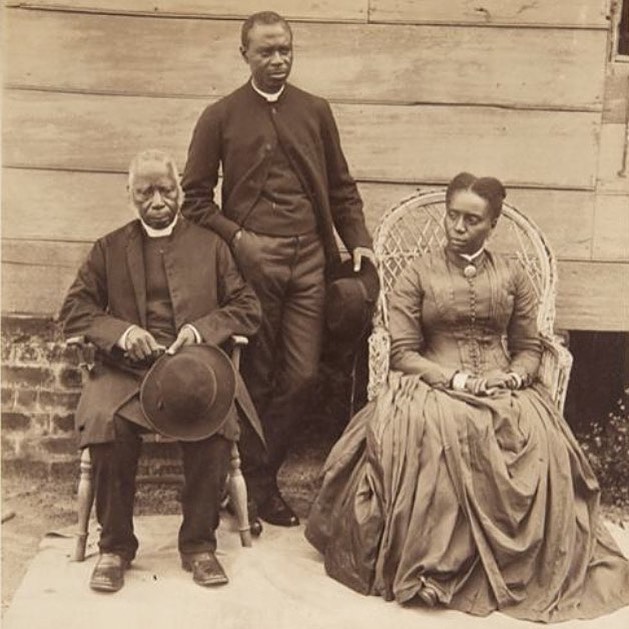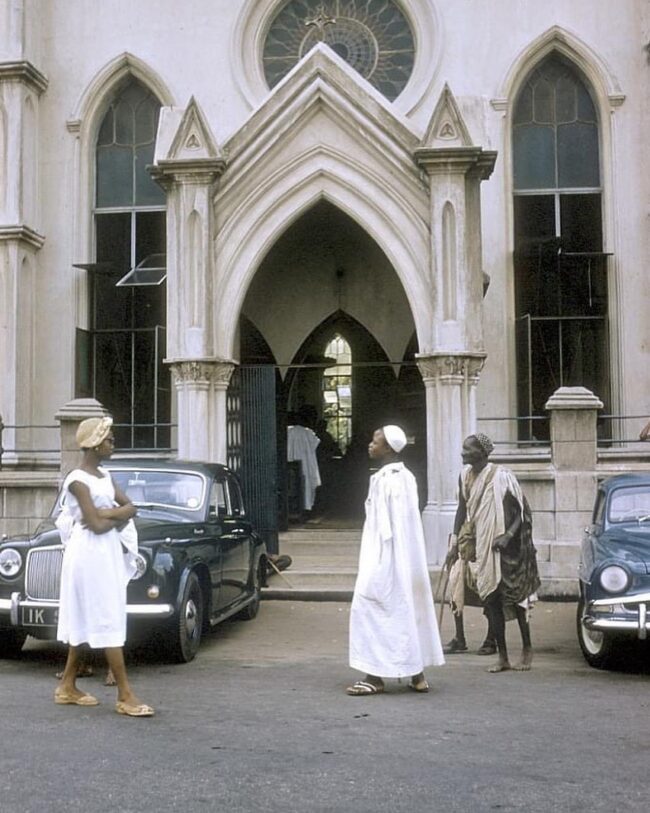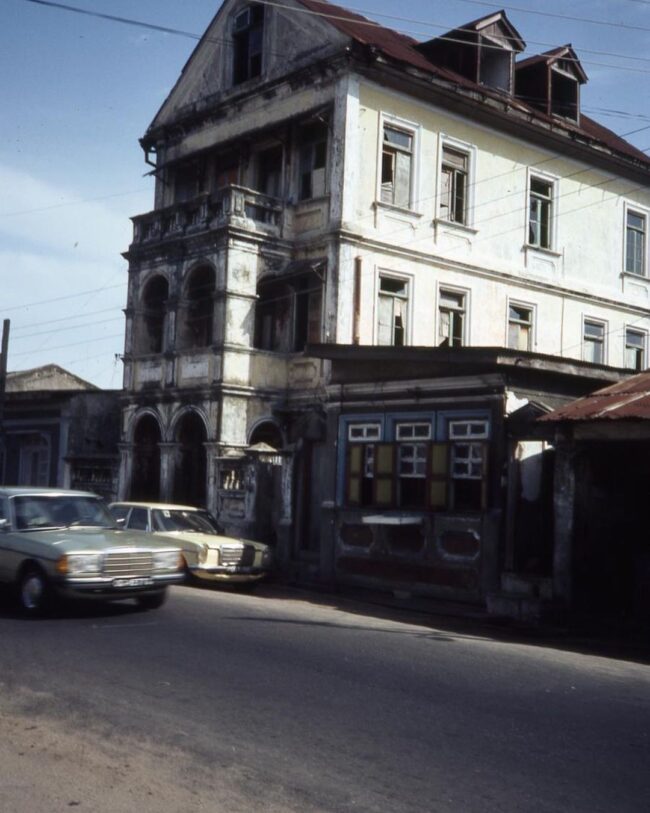The Prime Minister of Nigeria with Other Leaders During the Opening Session of the Nigerian Constitutional Conference at Lancaster House, London
From left to right, Lennox-Boyd, The leader of the western Region Obafemi Awolowo (1909 – 1987) of Western Nigeria, The Nigerian Prime Minister Abubakar Tafawa Balewa (1912 – 1966), the leader of the Northern region Ahmadu Bello (1910 – 1966) of Northern Nigeria and the Senate president and Governor General of Nigeria Nnamdi Azikiwe (1904…

